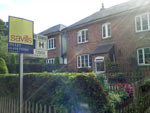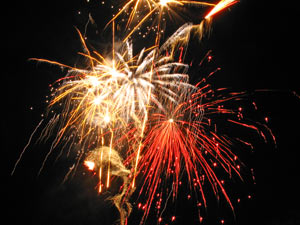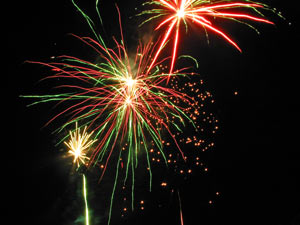The Economist’s Christmas-New Year double issue had a fantastic article on the current challenges facing British pubs — both economic (recession and the rise in energy costs), legislative (smoking ban, ratcheting up alcohol duty and being paranoid about upsetting the supermarkets) and social (rise of many alternative forms of entertainment and the general trend towards eating out rather than drinking — last year saw the biggest drop in alcohol consumption for a long time — see this BBC News report).
The whole article is happily available for free here on the Economist website (most articles there are subscription only and this may eventually go the same way).
However, despite being a good read, the original article is over 2,000 words long so I’ll try and summarise some of the arguments it makes that are most pertinent to the themes in ‘The Angel’.
Many pubs, particularly in lovely villages such as the as-yet-unnamed fictional community that will be home to The Angel, are worth far more developed as private houses than they are as businesses that generate cash. Within five miles of where I live I can think of at least three very desirable private houses that were pubs not so long ago — I’ve visited one on several occasions that still has its sign outside — The White Star I think it used to be.
Similarly, pubs often sit on valuable plots of land and many are bulldozed to be replaced with infeasible numbers of new-build houses all jammed together where the beer garden used to be. Sometimes the developers have the nerve to allude to the land’s former use by naming a new development ‘Innkeepers Court’ or ‘Red Lion Mews’. (Often developers will demolish a pub without planning permission for any other use — they smash the pub to pieces to prevent anyone else taking it over and making a better go of running it.)
And no planning permission is needed at all to change a pub into a businesses that the government and planning departments (but no-one else) regards as similar to a pub — usually restaurants. That’s why so many pubs have metamorphosised into the Olde Village Tandoori. Not that there’s anything wrong with a curry every so often but a restaurant performs a fundamentally different social function than a pub — where people interact casually at the bar and pop in and out.
As the Economist’s correspondent says (they don’t have names in the magazine, except for very special reports): ‘the vanishing of a pub means, by common consent, the loss of the beating heart of a community, in town or countryside. A pub can become a sort of encapsulation of place, containing some small turning’s grainy photographs, its dog-eared posters for last year’s fete, its snoozing cats, its prettiest girls behind the bar and its strangest characters in front of it.’
Some of the comments made on the website about the piece compare it to George Orwell’s famous ‘Moon Under Water’ essay that appeared in the London Evening Standard in 1946. I love the imagery of the snoozing cats and the prettiest girls behind the bar. The latter comment, predictably, drew accusations of sexism. I’d argue that the ‘pretty girls’ are more metaphorical than literal (although Nick at the Whip Inn in the village of Lacey Green seems to consistently deliver this attribute in practice as well as keeping some excellent beer).
Tim Martin was so inspired by the essay that he named many of his early Wetherspoon pubs after it — while Orwell might not have been too impressed with Wetherspoons barn-like interiors and supermarket type promotions, he might have seen some merit in its offering of staggeringly cheap food (£1.99 for ham, egg and chips in some) and reasonably priced real ale.
Whatever their merits, Wetherspoons don’t represent the profound continuity with the past of traditional pubs. As the Economist writes:Â ‘pubs are meant to preserve [history]. They hold ghosts, myths, the memory of kings; Green Men live on in them, White Horses carry Saxon echoes, Royal Oaks keep the drama of civil war and restoration. The world before the hunting ban still thrives in the Hare and Hounds and the Tally-Ho; old trades survive in the Compasses, the Woolpack and the Wheatsheaf.’
The pub is also a democratic institution and social leveller: ‘the origins of pubs [were] in the kitchens of wayside farmhouses, where a man exchanged his own hearth for another. He was not, however, alone there. In the pub he met his fellow men and, with them, formed a society of musers and drinkers. He mingled with people he might not otherwise meet, had words with them, was obliged to take stock of their opinions. In a highly stratified society of worker, merchant and lord, the pub was open to everyone.’
This may seem slightly exaggerated but in her excellent book, Watching the English, social anthropologist Kate Fox devotes a chapter to pub etiquette in which she explains how this democratic social interaction usually occurs only at the bar — and there’s a tacit understanding that the further one sits from the bar in a pub, Â the more privacy one is granted.
As the Economist says ‘Most pubs retain a peculiarly English blend of socialising and privacy’. Fox makes many other fascinating observations which support her claim that  ‘it would be impossible to even attempt to understand Englishness without spending a lot of time in pubs’. (Download the magazine from this link and scroll to pages 20 and 21 to read a review of the book I wrote in 2005).
Writing a novel about a pub I was pleased that the Economist agrees that ‘drama suits pubs. They are places for pushing limits, and not just in the sense of jars and fists…In pubs normal wariness is suspended in favour of live and let live, of free speech and free space… Americans have their guns; but the Briton has always had pubs, liberty glowing in thousands of small corners, as his weapon to beat back tyranny. John Bull lives there. When pubs are swallowed up, or die, something very much more than a beer-shop perishes with them.’
And the last paragraph is probably the most impassioned that I’ve ever read in the Economist — an exhortation, almost, that some things are more important than mere economics: ‘Time slows; company gathers; speech is freed; beer flows, like the very lifeblood of the land. Pubs are needed, even when every social and economic indicator is running hard against them.’
The ‘very lifeblood of the land’, indeed.



